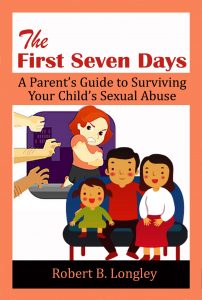The rape conviction of two high school football players in Steubenville, Ohio is an interesting microcosm of a variety of social and legal problems regarding sexual abuse and it’s definitions. Take away the names and the location and you have a scenario that is played out in communities across the country a hundred times a week. Kids trying to be popular, Kids wanting to be with the popular kids, kids getting drunk, and kids having sex.
What defines rape?
One of the biggest challenges, state to state, is that definitions for sexual offenses are all over the map. Reduce the age under 18 and it gets even more complicated. There are risk of injury charges that may or may not be sexually related. Some state’s have obscure terms like “Trovers”, or “Impairing the Morals” in their sexual offenses. Then there are qualifiers such as being within 5 years of the same age, consent ages, level of understanding, ability to grant consent, degree of planning, etc.
It’s entirely possible to have nearly identical physical acts treated completely differently from a legal perspective within the same state based on the relationship of the participants. And state to state, the same act and circumstances can have wildly different outcomes legally.
To drunk to ….
If you remember the band the Dead Kennedy’s, you can fill in the rest. Is it a double standard to say that someone was to drunk to give consent, but those accused are not to drunk to understand their intent? Adding alcohol or drugs to any situation and good judgement goes out the window. Add it to sexually curious teenagers who have no concept of what legal definitions are and you have a recipe for a mess.
What’s age got to do with it?
Most states have come to realize that what is criminal for an adult, is often just incredible stupidity for teenagers. Clearly there are exceptions. Bbut sexual related incidents can be some of the most challenging because they can go either way. There is a huge difference in the psychology or a 16 year old who forces a 9 year old to perform a sex act on them, compared to to a 17 year old performing a sexual act on a 15 year old girl at a party. The first is probably someone with a problem, the later may just be violating a statute on consent. Both could be labeled as sex offenders and end up adjudicated.
Depending on the state, your juvenile record and sex offender designation may end at 18, 21 or some other time determined by the court. Again, no standards state to state. Still there is a general consensus in the juvenile justice world that with proper treatment, juvenile mistakes don’t have to become adult convictions. So does someone under 18 have to live with their mistakes as an adult because they were labeled a sex offender years before? It’s a complicated issue that doesn’t have a consistent answer.
We can’t let this get out!
Whether it is a star football player, a local politician, or a beloved teacher, people will act to protect the status quo. They don’t want their heros to be guilty of things, so people will go to great lengths to put the genie back in the bottle. The victim in this case is already getting harassed on line. In our case, one of the families had their mailbox and post thrown through the window of their car (it wasn’t open). They got the hint and moved out of state.
Victims often feel the full weight of a community when the natural order of things is upset. I don’t think Spock (Star Trek) meant “the good of the many outweighs the good of the one” for situations like this. But the same logic regarding acting in the public good, also applies to self protection where reputations, ways of life, or championship games are at stake. It’s wrong, but it is human nature.
Fixing the problem
People are more or less the same anywhere you go. Drunk teenagers are not a phenomenon of one town or state. Sex abuse or rape doesn’t change much from state to state either. Laws need to have common definitions and outcomes in every state. With that as a foundation, we can do a better job of educating ourselves, and teenagers specifically, of where the boundaries are for appropriate sexual behavior. There will probably be another Steubenville, but if we all had the same legal interpretation of rape, it would be easier to attach the right labels to what happened. And it would be easier to take the right steps to ensure everyone gets the treatment/punishment that they deserve.
Let us know if we can help you dealing with your family’s sexual abuse situation. For ideas to get started please check out our book on what to do during the early days after disclosure.
